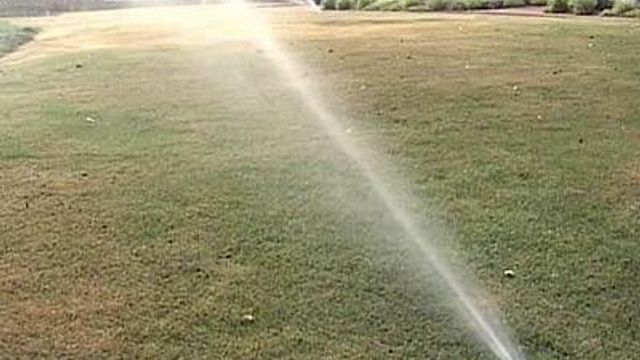Some Question Raleigh's Delay on Tougher Water Rules
Raleigh moves to the toughest water restrictions to date this Friday. But some people say tighter restrictions should have happened months ago.
Posted — UpdatedNonetheless, some people say tighter restrictions should have happened months ago. In September, Falls Lake had dropped so much you could already see its banks.
That same month, after a regional drought meeting, Raleigh's Public Utilities Director Dale Crisp said "sounds like we are going to have to move to Stage 2 because the drought does plan to continue for several months."
Crisp later backed off that statement, however.
Raleigh's City Manager, among others, said then that it was not time to go to Stage 2 restrictions. Instead, the City Council voted in October to ban sprinklers. Ed Buchan, a water conservation specialist for Raleigh's Public Utilities Department, said that helped cut daily water demand by about a third.
"Going to Stage 2 should have been done probably back in August (or) September of last year,” Dean Naujoks, of the Neuse River Foundation, said.
The foundation has long advocated for tougher water conservation.
"This current City Council is now inheriting a lot of baggage from the previous City Councils that have really drug their feet in terms of moving forward with good water-conservation measures,” Naujoks said.
"What the council needs to do and what it has been doing, is trying to make the best decisions it can based on the information it has at the present,” Raleigh Mayor Charles Meeker said.
Both the mayor and the city manager said upping water restrictions is a complicated decision. They pointed to the more than 200 people who came to last week's City Council meeting, saying tougher restrictions would put them out of business.
"So you really are affecting the the economy of the overall area and the livelihood of certain people,” Meeker said.
The Army Corps of Engineers, which manages Falls Lake, issued a forecast last week that suggested the lake, which is Raleigh's primary source of drinking water, would run dry this summer. The forecast was based on current consumption rates and predictions of continued dry weather.
Meeker noted Monday during his annual State of the City address that the drought gripping the state is in its 10th month – about twice as long as previous droughts.
• Credits
Copyright 2024 by Capitol Broadcasting Company. All rights reserved. This material may not be published, broadcast, rewritten or redistributed.





